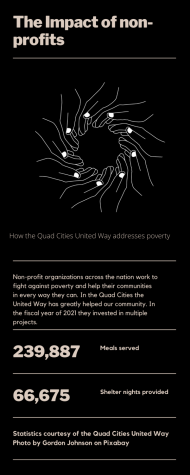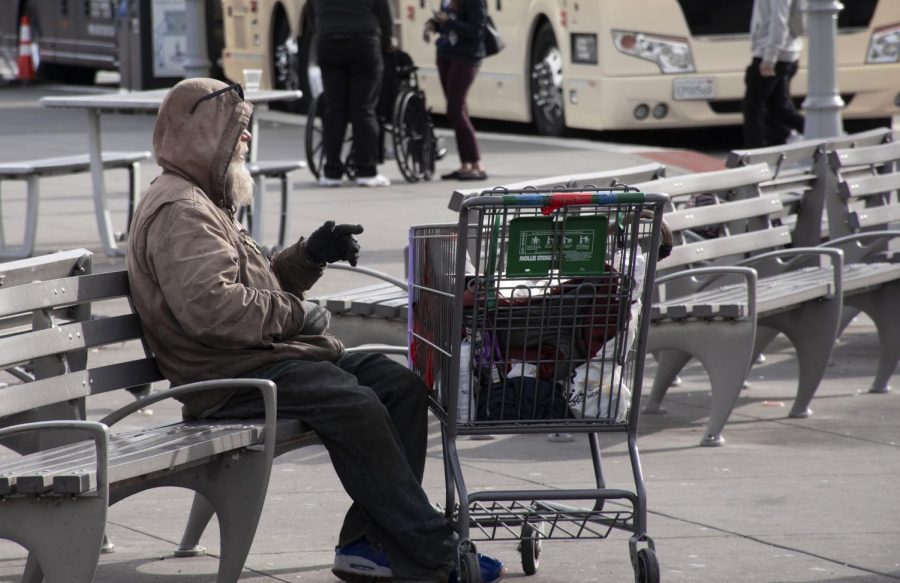America needs someone to do the dirty work. America needs someone to buy the day-old bread. America needs someone to test drugs on. America needs the working poor. America needs poverty and they don’t like to admit it.

Poverty-wage labor consists of jobs that provide a low income and are typically performed by impoverished people. Low-wage labor is employment that results in incomes under the federal poverty line. The income that marks the federal poverty line for one person is $12,880 and for a family of four $26,500. Those who do these jobs are often referred to as the working poor due to their income. 44% of American workers are in the low-wage workforce.
Jobs like housekeepers, personal care aides and cooks are considered poverty-wage labor. Many turn their noses up at these careers, but the services low-wage jobs provide are critical to the majority of Americans’ lives. The individuals who work these thankless jobs are often left with no other options.
Trever Zahn teaches his sociology students about poverty-wage labor in the class’s inequality unit. ¨I think it is important to have an understanding of the full-scope of things when it comes to the economy and the market place. When you talk about minimum-wage as an on-going topic, I thought it was interesting to find out that around 44% of all jobs in the marketplace right now would be considered “working poverty” types of positions so it is a considerable part of the entire population that facilitates societal processes, even despite the challenges these people face in trying to live off this type of wage,¨ he said.
Workers relying on such little pay often struggle to support themselves, and as workers attempt to support a family, this reliance becomes significantly more difficult. Finding affordable housing that suits a family is next to impossible. Child care is unaffordable and unavailable to many low income families.
There is no doubt that low-wage jobs are critical to the function of society and the actions and economic activity of impoverished people make the world go round.
Payment for participating in drug trials incentivizes low-income individuals as a way to earn supplemental income. These often invasive trials draw in impoverished people whose need for money outweighs the possible dangers and side effects.
Many businesses in America rely on low-income consumers to buy their discounted products that would otherwise be a total loss.
The education system fails students where poverty is common. It is hard to break the cycle and go to college when it is unaffordable to many students. High paying jobs require some sort of postsecondary education but many schools fail to prepare students for success. “I do think there are school districts in our country that could clearly benefit from more investment/funding, but it also critical for those districts to use that money efficiently and effectively, otherwise it is just a band-aid and the real problems are never addressed. By providing kids with more opportunities including college, trade schools and apprenticeships, they stand a much better shot of improving upon their current level in society,” Zahn said.
Poverty in America is perpetuated by the need for low-wage workers. Public policy is outdated and unrealistic like temporary assistance for needy families. When it was first introduced there was a legal right to receive it and now states can deny families. Communities leave their own in the dark. Ending the struggles that come with poverty-wage labor is no simple task; it is complex and will take a village.
Public policy like the child tax credit and COVID relief fund is in place to try and combat poverty but a lot of it must be reformed. Ideally, wages of low-income labor would be increased. Many progressives are suggesting a minimum income to be imposed. If wages cannot be raised, things like housing and childcare must be made more affordable.
Although there are certainly ways the government can help improve the life of the low-wage workers, in many cases, a strong sense of community means everything.
In the Quad Cities, United Way works to provide the community with resources to help low-wage workers. The non-profit organization provides meals, childcare, basic needs and many opportunities for the impoverished.
In communities across the nation, child care is expensive and hard to find, often leaving no choice but to rely on only one parent’s income. The issue of childcare presents an even bigger issue when it is a single parent household.
United Way invests a lot of time and money into families that need child care. Marci Zogg, the United way’s Vice President of Community Impact explained just one of the many United Way programs. “Our Keep the Lights On initiative put supplies and dollars in the hands of Quad cities early learning centers and in-home daycare providers to help ensure they could keep the lights on and families could continue to have reliable child care while working,” she said.
In the 2021 fiscal year, the United Way invested $809,576 into essential needs. Organizations like the United Way are instrumental in changing the circumstances of impoverished families.
Poverty wage workers are critical to the way society functions, yet they are left with little help to improve their lives. In order to help impoverished families escape poverty, the government and communities across the country must put in time and money to make an impact.









